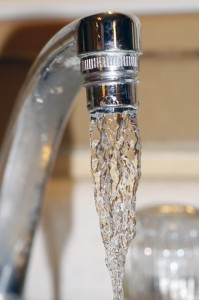Study finds flawed well casings– not fracking– caused tainted water
-
Marie Cusick
A new study finds water contamination linked to shale gas extraction in Pennsylvania and Texas was caused in some cases by faulty well casings– not hydraulic fracturing.
The study published today in the Proceedings of the National Academy of Sciences examined 133 water wells with high levels of methane. Researchers found the contamination was either naturally occurring or linked to faulty well construction by gas drillers.
Lead author Thomas Darrah of Ohio State University calls the findings a mix of good and bad news.
The bad news is that drilling activities can contaminate shallow aquifers with methane gas.
“The relatively good news is that the hydraulic fracturing process is not actually releasing the methane,” he says. “Instead, it’s actually problems along the well and well integrity that are allowing the some gas to leak out into the shall aquifer.”
Darrah was part of a team which included researchers from Duke, Standford, Dartmouth, and the University of Rochester.
Part of the confusion around water quality and natural gas development is the fact that hydraulic fracturing (fracking) is only one phase of shale gas extraction, but the word is often used as a catchall term for the entire process.
According to recently released data from the Pennsylvania Department of Environmental Protection, various aspects of oil and gas development have contaminated about 240 private water supplies since 2008.

















